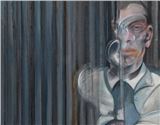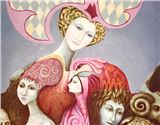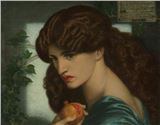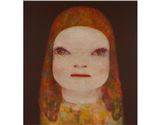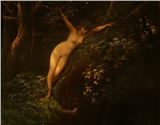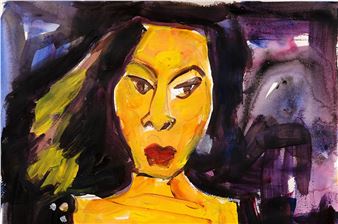Huckleberry Finn
This investigation of America and its realities through the lens of literature by means of artworks, artifacts, and historical documents is unique to the Wattis Institute. Huckleberry Finn will encompass a wide range of works, including painting, sculpture, film, video, drawing, and photography.
Through the lens of Adventures of Huckleberry Finn, this exhibition addresses issues of racism, the violent history of slavery, and struggles for equality. The first floor provides an introduction to the novel through ephemera such as first editions, reviews from the book's initial publication, photographs of Mark Twain, and the 1920s silent film adaptation. Historical artifacts and artworks generate a portrait of the American South and African-American life under slavery. The second floor is entirely devoted to newly commissioned and contemporary artwork that reflects upon themes from the book. The resulting narrative provides viewers with a sense of the book's history, a portrait of the time it was written, and contemporary reflections on the controversial work.
2010 marks the 125th anniversary of the first publishing of Adventures of Huckleberry Finn and the 100th anniversary of Mark Twain's passing. Since 1885 when the novel was first released, it has been consistently censored in libraries and schools for its repeated use of racial slurs and its arguably ambiguous depiction of Jim, an African-American slave. While it is counted as one of the most important works of American literature, it still tops the banned book list in America, revealing that its underlying issues of intolerance, racism, and struggles for equality are not things of the past, but still vividly alive in our society. Adventures of Huckleberry Finn is not a relic, but a living reminder of the problems of racism that still riddle our society.
The Wizard of Oz, Moby-Dick and Adventures of Huckleberry Finn all conjure up romantic nostalgia for the American dream, where freedom and adventure perpetually lie on the horizon. Taken at face value, Adventures of Huckleberry Finn chronicles the epic adventure of a boy Huck and his loyal friend Jim as they raft down the Mississippi river. They meet rapscallions, narrowly dodge family feuds, and deepen their burgeoning friendship, all while helping Jim reach freedom. Looking further into the narrative, it is a portrait of the time and an intimate look at a young boy's self-education. While many have charged Twain with racism because of his repeated use of racial slurs in the novel, this reading is an oversimplification. Though slavery had been abolished when Adventures of Huckleberry Finn was published, Jim Crow laws were an ongoing and violent form of oppression. Twain's portrait of the South in the 1830s details the hypocrisy of racism that continued through his time and ours.
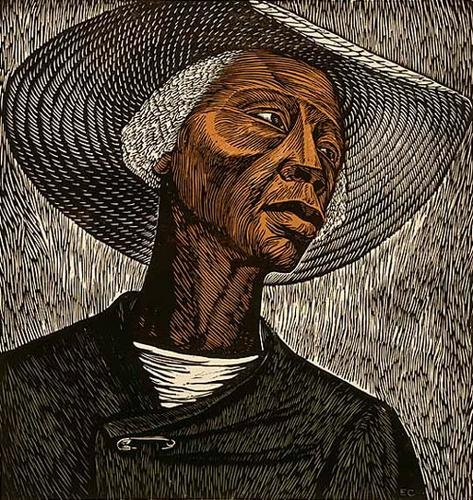
Recommended for you
This investigation of America and its realities through the lens of literature by means of artworks, artifacts, and historical documents is unique to the Wattis Institute. Huckleberry Finn will encompass a wide range of works, including painting, sculpture, film, video, drawing, and photography.
Through the lens of Adventures of Huckleberry Finn, this exhibition addresses issues of racism, the violent history of slavery, and struggles for equality. The first floor provides an introduction to the novel through ephemera such as first editions, reviews from the book's initial publication, photographs of Mark Twain, and the 1920s silent film adaptation. Historical artifacts and artworks generate a portrait of the American South and African-American life under slavery. The second floor is entirely devoted to newly commissioned and contemporary artwork that reflects upon themes from the book. The resulting narrative provides viewers with a sense of the book's history, a portrait of the time it was written, and contemporary reflections on the controversial work.
2010 marks the 125th anniversary of the first publishing of Adventures of Huckleberry Finn and the 100th anniversary of Mark Twain's passing. Since 1885 when the novel was first released, it has been consistently censored in libraries and schools for its repeated use of racial slurs and its arguably ambiguous depiction of Jim, an African-American slave. While it is counted as one of the most important works of American literature, it still tops the banned book list in America, revealing that its underlying issues of intolerance, racism, and struggles for equality are not things of the past, but still vividly alive in our society. Adventures of Huckleberry Finn is not a relic, but a living reminder of the problems of racism that still riddle our society.
The Wizard of Oz, Moby-Dick and Adventures of Huckleberry Finn all conjure up romantic nostalgia for the American dream, where freedom and adventure perpetually lie on the horizon. Taken at face value, Adventures of Huckleberry Finn chronicles the epic adventure of a boy Huck and his loyal friend Jim as they raft down the Mississippi river. They meet rapscallions, narrowly dodge family feuds, and deepen their burgeoning friendship, all while helping Jim reach freedom. Looking further into the narrative, it is a portrait of the time and an intimate look at a young boy's self-education. While many have charged Twain with racism because of his repeated use of racial slurs in the novel, this reading is an oversimplification. Though slavery had been abolished when Adventures of Huckleberry Finn was published, Jim Crow laws were an ongoing and violent form of oppression. Twain's portrait of the South in the 1830s details the hypocrisy of racism that continued through his time and ours.
Artists on show
- Abraham Cruzvillegas
- Alec Soth
- Allison Smith
- Betye Saar
- Claude Clark
- Clementine Hunter
- David Hammons
- Dorothea Lange
- Edgar Arceneaux
- Elizabeth Catlett
- Ellen Gallagher
- Emory Douglas
- Felix González-Torres
- Geoffrey Farmer
- Glenn Ligon
- Hank Willis Thomas
- Henry Lewis
- Horace Pippin
- Jamal Cyrus
- Jason Meadows
- Kara Walker
- Kirsten Pieroth
- Kristen Morgin
- Rodney Graham
- Romare Bearden
- Thomas Nast
- Tim Lee
- Yinka Shonibare
Contact details


 ARTISTS
ARTISTS
